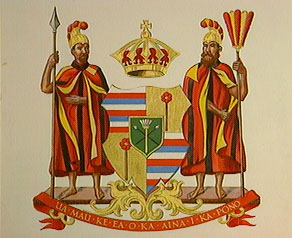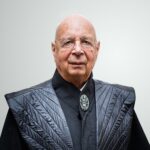Is Pakistan a friend to the Kingdom of Hawai’i? Well, it may be so, as this is what happened…
“On Monday, May 11, 2015, at the US UPR [fusion_builder_container hundred_percent=”yes” overflow=”visible”][fusion_builder_row][fusion_builder_column type=”1_1″ background_position=”left top” background_color=”” border_size=”” border_color=”” border_style=”solid” spacing=”yes” background_image=”” background_repeat=”no-repeat” padding=”” margin_top=”0px” margin_bottom=”0px” class=”” id=”” animation_type=”” animation_speed=”0.3″ animation_direction=”left” hide_on_mobile=”no” center_content=”no” min_height=”none”][Universal Periodic Review], Pakistan broke the ice by posing a request to the US pertaining to us. There! A member State of the UN actually said it indirectly but clearly, suggesting that Alaska and Hawai`i are situations that come under international law, not US domestic law…and more specifically, our cases require the attention of the UN Decolonization Committee.”
This may very well be one of the necessary steps to restoring the recognition of the Kingdom of Hawai’i in the international arena, leading to the end of US occupation of these lands.
————————————————————
BREAKTHROUGH AT THE UNITED NATIONS – US QUESTIONED ON HAWAI`I
On Monday, May 11, the Koani Foundation got the break we have been working for years to achieve! It has caused a big stir in Geneva and in the international community, but is being downplayed or ignored in the UN, which also means it is being downplayed in Hawai`i.
What Are We Doing At The UN? –
The Hawaiian Kingdom is not at the UN to get “recognition.” We are not there to try to “join” the UN. We are not there to ask to be “decolonized.” We are not there to invoke “indigenous” rights.
We are there to call on the member states of the UN to compel its fellow member, the United States of America, to comply with international law by ending its prolonged, illegal occupation of the Hawaiian Islands.
The US Lied To The UN –
In 1959, the United States misled the United Nations General Assembly into thinking that Alaska and Hawai`i had voted to become fully integrated into the United States as “federal domestic states.” It was a false report, but the General Assembly accepted it and from that point on, considered Alaska and Hawai`i to be under the domestic laws of the United States, not as peoples and territories under the international law of nations.
This false depiction of our status has been so engrained globally that people find it hard to believe Hawai`i is not a part of the US. This has practically blocked our ability to engage other countries and international bodies like the UN, to support our efforts to free Hawai`i.
Our Task At The UN –
If we want to engage the United Nations to help free Hawai`i, we have to change the engrained perception—getting the UN to see Hawai`i as a sovereign nation-state in captivity rather than a minority population of “federally recognized” “Native-Hawaiian-Americans” within the fake federal “State of Hawai`i” and all completely subjected under US laws.
The key to changing the perception is persistence and consistency. Being present and constantly using every opportunity to speak, file and refile petitions, complaints and interventions to make our point; tell our story to anyone who will listen and even those who may not want to listen…and being pleasant and diplomatic…eventually it gets through.
We have approached and engaged many different mechanisms at the UN that might be able to help. In particular, we have concentrated on several human rights bodies based in Geneva as well as a couple of General Assembly committees in New York.
The breakthrough we recently had was in the Human Rights Council.
The Universal Periodic Review –
Every few years, on a rotational basis, each member State (country) of the United Nations has its human rights “record” reviewed by the United Nations Human Rights Council based in Geneva. This process is called the Universal Periodic Review. Last week it was the United States’ turn. The way it works, is that months before the review, the country submits its report of how they are doing internally on a wide range of human rights topics, self-analyzing their strengths and weaknesses. The other member states (countries) examine the report and formulate their questions and/or recommendations to make to the US.
On May 11, 2015 a formal meeting was convened in the main salon at the Palais des Nations, the UN headquarters in Geneva. There, the delegation from the US made its oral presentation for about an hour, then the member states that signed up to speak have an opportunity to give their observations, questions and recommendations through what is called “interventions.” Only member states can participate in making written and oral interventions at a UPR. There were over 120 States signed up to give oral interventions. They were only given 1 minute each, so it took well over two hours to get through all the speakers.
Most of the interventions have a few seconds of platitudes (congratulating the US, etc.) then they list a number of concerns. As you can guess, a lot of them have concerns.
At the Universal Periodic Review of the United States, only member countries of the UN (called “member States”) can make remarks or ask questions. Outsiders like us who are not member States, have to find a member State to ask a question for us. That’s how it works.
Representatives from the people of Alaska and Hawai`i teamed up about 10 years ago to assert our independence. One of the key elements of the partnership is to have the UN question the US claim that Alaska and Hawai`i are “federal states” of the US.
While there are many UN member States sympathetic to our pursuit, for ten years, none has been willing to stick its neck out to mention the irregularities regarding Alaska and Hawai`i. It was safer to not disturb the dragon.
But we persisted in attending dozens of meetings at the UN in Geneva and New York to press our case. Over the years, things have shifted in our favor.
On Monday, May 11, 2015, at the US UPR, Pakistan broke the ice by posing a request to the US pertaining to us. There! A member State of the UN actually said it indirectly but clearly, suggesting that Alaska and Hawai`i are situations that come under international law, not US domestic law…and more specifically, our cases require the attention of the UN Decolonization Committee.
In the subdued, understated, circumspect, innuendoed world of diplomacy, Pakistan’s query was like the fable where the boy blurts out, “But the emperor has no clothes!” Everyone could see it, but no one wanted to say it.
Until now.
Tomorrow – The Alaska – Hawai`i Press Statement[/fusion_builder_column][/fusion_builder_row][/fusion_builder_container]









